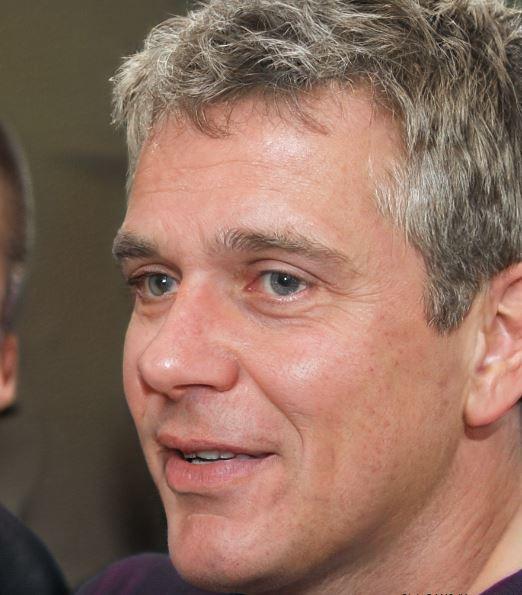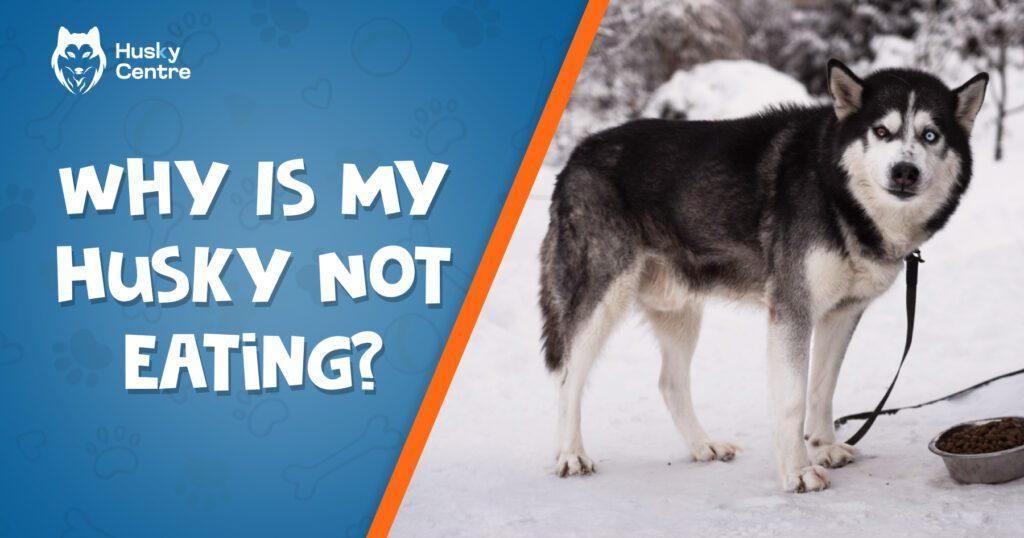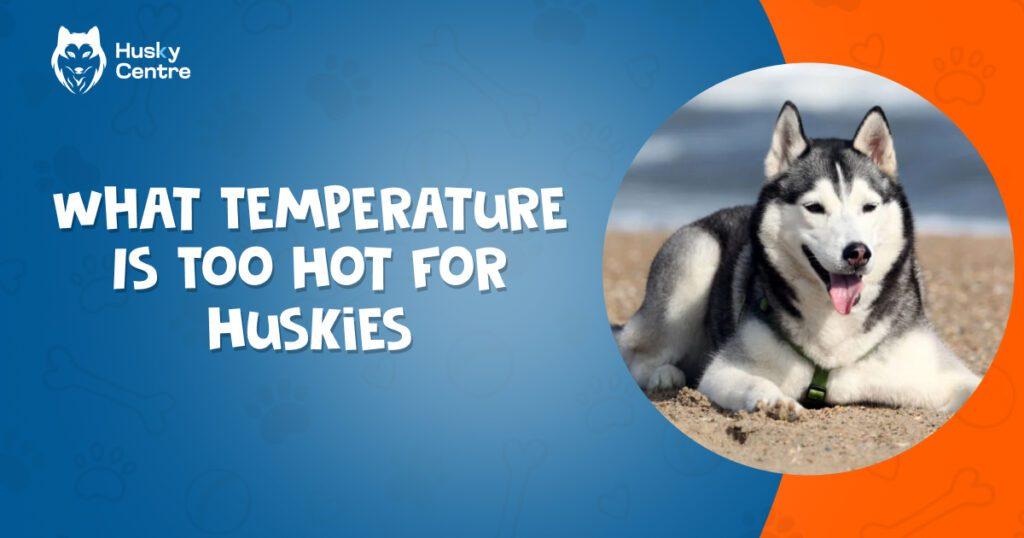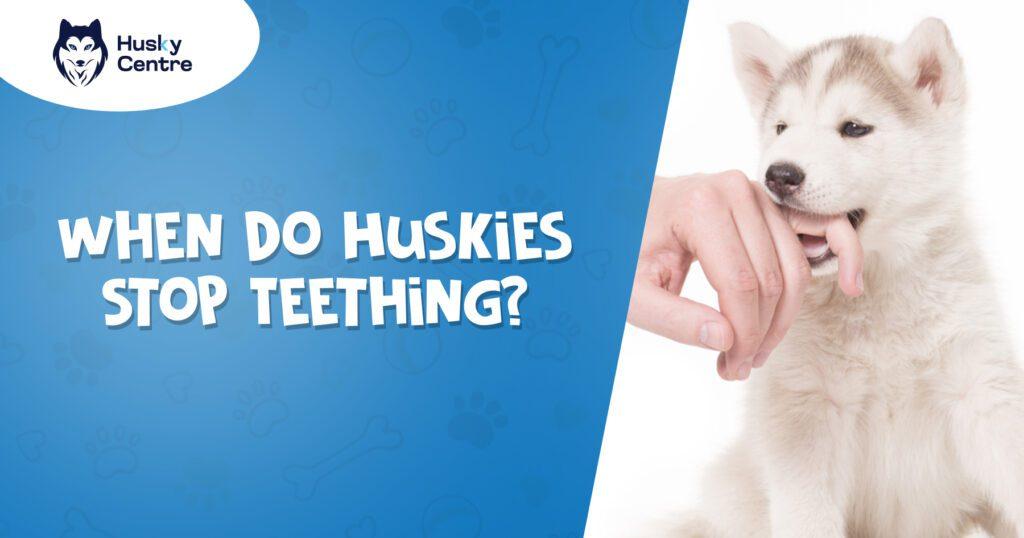Your Husky may not be eating due to factors such as illness, change in routine, or dislike of current food. A sudden loss of appetite in your Husky can be concerning.
It’s important to understand the reasons behind this behavior, as it could be an indication of an underlying issue. Several factors can contribute to a Husky’s refusal to eat. It might be due to an illness or discomfort, a change in their routine or environment, or simply a dislike of their current food.
We will explore common reasons why your Husky may not be eating and provide some helpful tips to encourage healthy eating habits. So, let’s dive in and find out why your Husky is not eating.
Understanding The Husky’s Eating Behavior
Factors Affecting Husky’s Appetite
There can be various factors that affect a husky’s appetite. It is important to recognize these factors in order to understand why your husky might not be eating. Some common factors include:
- Stress: Huskies are sensitive dogs and changes in their environment or routine can cause stress, which can lead to a loss of appetite. It could be due to a new home, a new family member, or even loud noises.
- Illness or pain: Just like humans, dogs can also experience illness or pain that affects their appetite. It could be a simple stomach ache or a more serious underlying health condition.
- Weather: Huskies are known for their thick coats, which means they are more comfortable in cooler temperatures. In hot weather, they may not feel like eating as much due to the discomfort.
- Boredom: Huskies are active and intelligent dogs. If they don’t get enough mental and physical stimulation, they can become bored and lose interest in food.
- Diet changes: Changing your husky’s diet suddenly or introducing new food can also lead to a temporary loss of appetite.
Normal Eating Patterns Of Huskies
Huskies have their unique eating habits that differ from other dog breeds. It is essential to understand their normal eating patterns to determine if their lack of appetite is a cause for concern. Some characteristics of a husky’s eating behavior include:
- Intermittent fasting: Huskies have a long history of being sled dogs, and this has influenced their eating patterns. They are known to naturally fast for short periods of time, which is not unusual for them.
- Finicky eaters: Huskies can be picky when it comes to their food. They might become bored with the same food and prefer variety in their meals.
- Scheduling: Huskies generally prefer having scheduled meal times rather than free feeding throughout the day.
- Eating small amounts: Huskies are not big eaters and often prefer eating smaller, frequent meals rather than large ones.
How To Differentiate Between Occasional Loss Of Appetite And Chronic Lack Of Interest In Food
It is crucial to differentiate between occasional loss of appetite, which is usually temporary, and chronic lack of interest in food, which may indicate an underlying health issue. Here are some signs to look out for:
- If your husky has occasional loss of appetite, they might still show interest in food and eat when presented with something highly palatable, such as their favorite treats or something new and exciting.
- They might have a decreased appetite but still drink water normally.
- If your husky’s lack of interest in food persists for more than a day or two, or if they refuse to eat even highly palatable treats, it is a sign of chronic lack of interest and you should consult a veterinarian as soon as possible.
- Other concerning signs to look out for include weight loss, lethargy, vomiting, and diarrhea.
- Remember, as a responsible husky owner, it is important to monitor your dog’s eating behavior and seek professional advice if you have any concerns about their health or appetite.
Common Health Issues That Affect Husky’s Appetite
Huskies may experience a variety of health issues that can affect their appetite. If your husky is not eating, it could be due to factors such as dental problems, illness, stress, or a change in routine.
It is important to identify the underlying cause and consult with a vet for proper diagnosis and treatment.
Dental Problems And Oral Health Issues
One of the common health issues that can affect a husky’s appetite is dental problems and oral health issues.
Huskies, like other breeds, can suffer from dental issues such as periodontal disease, tooth decay, and gum infections. These issues can cause pain and discomfort while eating, leading to a loss of appetite.
Digestive Disorders And Gastrointestinal Problems
Digestive disorders and gastrointestinal problems can also have a significant impact on a husky’s appetite.
Issues such as gastritis, colitis, and pancreatitis can cause stomach pain, inflammation, and digestive disturbances, making it difficult for a husky to eat or feel hungry. Inflammatory bowel disease (IBD) is another common digestive disorder that can affect a husky’s appetite.
Allergies And Food Intolerance
Allergies and food intolerances are another factor that can contribute to a husky not eating.
Like humans, some huskies may have allergies to certain foods or ingredients, such as wheat, soy, or specific proteins. These allergies can cause gastrointestinal discomfort, vomiting, and diarrhea, leading to a decreased appetite.
Infections And Viruses
Infections and viruses can also affect a husky’s appetite. Canine distemper, parvovirus, and other viral infections can cause symptoms such as fever, lethargy, and digestive upset, making it difficult for a husky to eat.
Bacterial infections, such as kennel cough or respiratory infections, can also affect their appetite.
Stress And Anxiety
Stress and anxiety can have a significant impact on a husky’s appetite.
Huskies are sensitive dogs and can become stressed or anxious due to various factors such as changes in their environment, separation anxiety, or loud noises. This can lead to a loss of appetite and reluctance to eat.
Tips And Strategies To Encourage Husky’s Eating
Encourage your Husky to eat with these effective tips and strategies. Discover why your Husky may not be eating and learn how to address this concern while ensuring their overall health and well-being.
Assessing The Feeding Routine And Environment
When it comes to a husky not eating, it’s essential to assess their feeding routine and environment. The first step is to determine if you are feeding your husky at consistent times throughout the day or if their feeding schedule has been disrupted.
Huskies thrive on routine, so establishing a regular feeding schedule can help stimulate their appetite. Additionally, you should evaluate the environment in which they are fed.
Huskies are sensitive to noises and distractions, so it’s important to create a calm and quiet space for them during meal times.
Choosing The Right Dog Food And Nutrition
Choosing the right dog food and ensuring proper nutrition is crucial in encouraging a husky to eat.
Start by selecting a high-quality dog food that is specifically tailored to meet the nutritional needs of huskies. Look for labels that indicate balanced nutrition, including a blend of proteins, carbohydrates, fats, vitamins, and minerals.
It’s recommended to consult with a veterinarian to determine the appropriate portion size and diet for your husky. A balanced and nourishing diet will not only entice your husky to eat but also promote their overall health and well-being.
Using Mealtime Incentives And Food Puzzles
If your husky is a discerning eater, using mealtime incentives and food puzzles can help stimulate their interest in eating.
Try incorporating some interactive feeding toys or puzzles into their meal routine. These puzzles dispense food gradually, providing mental stimulation and a fun challenge for your husky.
Additionally, you can use mealtime incentives such as small pieces of cooked chicken or vegetable treats to encourage your husky to eat their regular food.
These incentives can be gradually reduced once your husky develops an appetite for their regular meals.
Creating A Stress-free Environment During Meal Times
Creating a stress-free environment during meal times is crucial in encouraging your husky to eat. Huskies are highly sensitive dogs and can become anxious or stressed if they feel pressured to eat. Avoid hovering around them during meal times and refrain from rushing or forcing them to eat.
Instead, provide a calm and relaxed environment where your husky can eat at their own pace. Additionally, establish a comfortable and appropriate feeding area for your husky. Ensure that the food and water bowls are clean and easily accessible, making the dining experience enjoyable for your husky.
Credit: blog.tryfi.com
When To Visit The Veterinarian
As a responsible pet owner, it’s important to closely monitor your husky’s eating habits. While a temporary loss of appetite or selective eating can be normal for dogs, persistent or significant changes in your husky’s eating behavior could be cause for concern.
In such cases, it’s crucial to know when it’s time to seek veterinary intervention. Certain warning signs and potential underlying health conditions may necessitate a visit to the veterinarian, where diagnostic tests and examinations can help identify the issue and provide appropriate treatment.
Warning Signs That Indicate A Need For Medical Attention
significant changes, persistent, cause for concern, warning signs, medical attention
When your husky’s appetite diminishes or vanishes completely, it can be an indication of an underlying health issue.
While it’s important to note that occasional minor fluctuations in eating patterns can occur, it becomes imperative to seek veterinary attention if you observe any of the following warning signs:
- Refusal to eat for more than 24 hours
- Rapid or excessive weight loss
- Lethargy or decreased energy levels
- Vomiting or diarrhea
- Excessive thirst or urination
- Changes in stool color or consistency
- Unusual behaviors like pawing at the mouth or face, indicating potential dental issues
If you notice any of these warning signs, it’s crucial to consult a veterinarian promptly to identify and address the underlying cause.
Potential Underlying Health Conditions That Require Veterinary Intervention
Bolded Phrases: underlying health issue, consult a veterinarian promptly, potential dental issues
A range of health conditions can contribute to a husky’s lack of appetite. Some potential underlying health conditions that warrant veterinary intervention include:
- Dental problems, such as gum disease, dental abscesses, or broken teeth
- Gastrointestinal disorders, including gastritis, ulcers, or infections
- Parasitic infections like worms or giardia
- Endocrine disorders, such as hypothyroidism or diabetes
- Respiratory infections or allergies affecting the nasal passages or throat
- Pain or discomfort from injuries or musculoskeletal problems
- Liver or kidney diseases
It’s important not to self-diagnose but rather consult a veterinarian who can properly evaluate your husky’s symptoms and conduct the necessary tests to determine the specific cause.
Diagnostic Tests And Examinations That Can Help Identify The Issue
Consult a veterinarian, evaluate your husky’s symptoms, necessary tests, specific cause
When you visit the veterinarian with concerns about your husky’s appetite, they will perform a series of diagnostic tests and examinations to identify the underlying issue. These may include:
- Blood tests to assess organ function and detect any abnormalities
- Urinalysis to check for kidney function and signs of infection
- X-rays or ultrasound scans to examine the internal organs and identify any structural abnormalities
- Dental examination to determine if oral health issues are causing discomfort or pain
- Fecal tests to check for parasites or signs of gastrointestinal conditions
These tests, along with a detailed examination by the veterinarian, will provide valuable insights into your husky’s health and help in devising an appropriate treatment plan.
Addressing Specific Eating Issues In Huskies
Huskies are known for their voracious appetites, so it can be concerning when your furry friend refuses to eat. There can be several reasons why your husky is exhibiting specific eating issues. In this blog post, we will discuss common eating issues that huskies experience and provide effective solutions to address them.
Picky Eating And Selective Behavior
One of the most common eating issues in huskies is picky eating and selective behavior. Your husky may turn their nose up at certain types of food or refuse to eat altogether. This can be frustrating, especially if you have been providing a balanced diet. To address picky eating in huskies, consider the following:
- Introduce variety: Huskies thrive on a varied diet. Experiment with different types of proteins, such as chicken, beef, or fish. Switching up the flavors can entice your picky eater.
- Enhance the aroma: Huskies have a keen sense of smell. Sprinkling a small amount of warm water or low-sodium broth on their food can enhance the aroma and make it more appealing to them.
- Avoid table scraps: As tempting as it may be, avoid feeding your husky table scraps. This can encourage selective behavior and make them hold out for tastier options.
Overfeeding And Obesity Concerns
Overfeeding can quickly become an issue with huskies, as they have a tendency to overeat. This can lead to obesity, which can be detrimental to their overall health. To prevent overfeeding and address obesity concerns in huskies, consider the following:
- Portion control: Measure your husky’s food portions according to their recommended daily intake. Avoid free-feeding, as this makes it difficult to regulate their food consumption.
- Stick to a feeding schedule: Establish a consistent feeding schedule and feed your husky at the same time every day. This helps them develop a routine and prevents them from begging for food throughout the day.
- Incorporate exercise: Regular exercise is crucial for maintaining a healthy weight in huskies. Engage your husky in physical activities like brisk walks or playtime to prevent excessive weight gain.
Transitioning To New Diets And Introducing New Foods
Introducing new diets or foods to your husky can be a challenging process. They may be hesitant or experience digestive issues during the transition. To ease the process of transitioning to new diets or introducing new foods, follow these tips:
- Gradual transition: Mix a small amount of the new food with their current food and gradually increase the proportion over a period of 7-10 days. This allows their digestive system to adjust to the new diet without causing upset stomachs.
- Monitor digestive health: Keep an eye on your husky’s bowel movements and overall well-being during the transition period. If you notice any severe digestive issues, consult your veterinarian for guidance.
- Offer variety within the new diet: If you have switched to a new diet, try offering different flavors within the food brand or rotate between different high-quality brands to provide variety while maintaining a balanced diet.
Dealing With Food Aggression And Possessiveness
Food aggression and possessiveness can be problematic in huskies, especially if they show aggressive or territorial behavior during mealtimes. To address these issues, follow these guidelines:
- Training and socialization: Enroll your husky in obedience training classes to address any behavioral issues related to food aggression. Socialization with other dogs during the training will also help them learn to share resources.
- Establish boundaries: Set clear rules during mealtimes and ensure your husky understands that food belongs to you and is provided by you. Teach them to wait patiently for their meals and discourage any possessive behaviors.
- Consult a professional: If your husky’s food aggression persists or escalates, consider seeking guidance from a professional dog trainer or a veterinary behaviorist who specializes in aggression issues.
By addressing these specific eating issues in huskies, you can help ensure your furry friend maintains a healthy appetite and overall well-being. Remember, patience and consistency are key when addressing any eating issues, and it’s always a good idea to consult your veterinarian for personalized advice.
Frequently Asked Questions For Why Is My Husky Not Eating
Why Is My Husky Not Eating When It Was Fine Yesterday?
There can be several reasons why your husky is not eating, such as a change in their routine, dental issues, stress, or an underlying health problem. If the lack of appetite persists, it’s best to consult with a veterinarian for a proper diagnosis and appropriate treatment.
How Can I Encourage My Husky To Eat Again?
To encourage your husky to eat again, try offering different types of food, such as wet or homemade meals, and ensure you are providing a comfortable and calm feeding environment. Gradually introducing new food or incorporating tasty treats can also entice them to eat.
However, consulting with a veterinarian is essential if the issue persists.
When Should I Be Concerned If My Husky Doesn’t Eat?
If your husky goes more than 24-48 hours without eating or shows other symptoms like lethargy, vomiting, or diarrhea, it is time to consult with a veterinarian. These signs can indicate a more serious underlying health issue that requires immediate attention.
It’s better to be safe and have your husky checked by a professional.
Conclusion
To sum up, understanding why your husky is not eating is crucial for their overall health and well-being. By considering potential causes such as stress, medical conditions, and diet preferences, you can address this issue effectively. Remember to consult with a veterinarian, offer a balanced and nutritious diet, and create a calm and comfortable environment for your furry friend.
With patience and care, you can help your husky regain their appetite and maintain their vitality.


Meet Jarred, the heart and soul behind HukyCentre. With a deep affection for furry friends, he pours his passion into every word he writes. His genuine love for dogs shines through in his engaging and informative content. As a dedicated dog enthusiast, Jarred’s goal is to share valuable insights and tips that resonate with fellow dog lovers. Join Jarred on the journey as he celebrates the joy and companionship that dogs bring into our lives.



